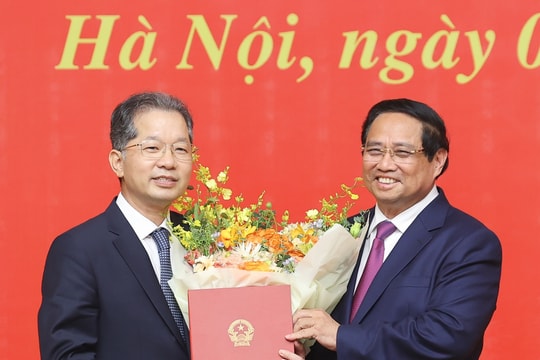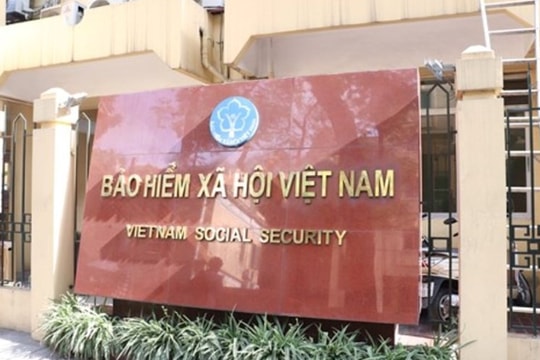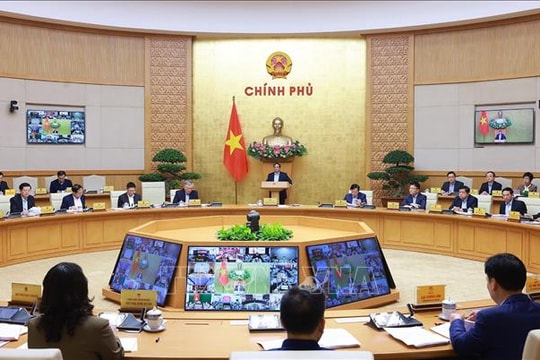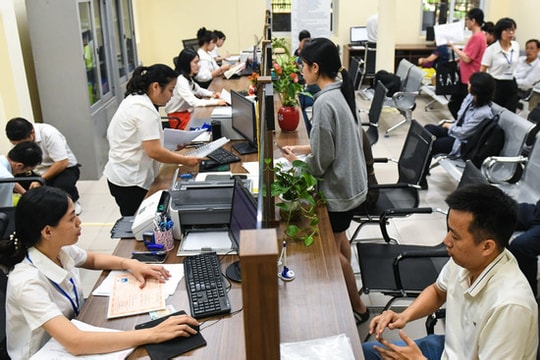The whole family is in office: Where is the loophole?
With strict procedures, standards, and planning, how can there be loopholes, let alone holes, in the work of appointing leaders, how can children be promoted to become officials?
It is right and appropriate for talented people to be appointed to leadership positions, but what about family members such as children, siblings, grandchildren, and even distant relatives...?
Bush Sr. became President of the United States, then Bush Jr., the late Prime Minister Lee Kuan Yew, then current Prime Minister Lee Hsien Loong of Singapore, the late President Park Chung Hee and current President of South Korea Park Geun Hye... There are many examples that can be mentioned, so the story of family members, first and foremost children continuing to follow in their father's footsteps to become leaders is nothing new or strange in the world.
So is there any problem for Vietnam? In short, it is not new, but quite strange. So strange that Prime Minister Nguyen Xuan Phuc had to exclaim: "The selection and appointment is to find talented people, not to find relatives." The basic capital for Mr. Bush, Lee Hsien Loong and Ms. Park Geun Hye to follow their fathers to become president and prime minister is not the halo left by their fathers, but real talent. Without real talent, without real ability, one cannot be elected. And this is the fundamental difference with us.
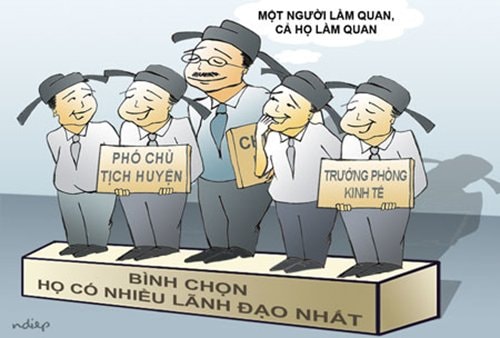 |
| Illustrated by |
30, 40 years ago was not like now. At that time, stories of family members becoming officials were relatively rare and it could be said that these family members becoming officials were basically talented and worthy.
In the past ten or fifteen years, family members holding official positions have become relatively common. The stories about family members holding official positions that the press has reported, such as in My Duc, the Ministry of Industry and Trade, and most recently Ha Giang, are not isolated incidents. Many readers have responded to the same story in my agency, in my district, in my department, in my ministry...
If we calculate the average number of officials according to the folk formula "descendants, relationships, money, intelligence", the percentage of talented people becoming officials is too small in our country and this is a worrying thing for the country's development.
People are upset, but everything is following the procedure. Whenever there is a matter to be considered, the records and appointment procedures are basically fine. So where is the problem?
In principle, the Party attaches great importance to personnel work, including the issue of cadres and civil servants in leadership and management. To ensure that everything is correct and that talented people become leaders, the Party and the State set out:
- Criteria: To become a minister, deputy minister, chairman, vice chairman of the provincial People's Committee, department head, department director... the criteria must be like this,
- Leadership planning: If you want to be appointed in the future, you must enter this planning.
- The appointment process, which is characterized by a vote of confidence.
These issues are regulated very clearly and specifically. In addition, to ensure democracy in personnel work, there is also a system of Party executive committees in ministries and provincial People's Committees.
With such a design, how could there be any loopholes, let alone holes, in the appointment of leaders, how could children be promoted to become officials? However, the irony is that all four issues mentioned above, if people want to, can be bypassed so that in the end, the leaders are relatives.
Standards, if needed, then there is. This is considered for children from a very early age, and will be met. Degrees and educational certificates are not difficult to find. Even if they do not meet the prescribed standards, they are ignored, with reasons such as local characteristics, ministry or sector characteristics, which basically no one checks.
If there were a serious general inspection of the appointment of officials from district level to central ministries and branches to see whether they meet the standards or not, there would be data for this issue alone.
Entering leadership planning is not that difficult, within the leader's reach. Everything will be directed and the relevant departments will organize implementation.
And finally, the process of getting a vote of confidence for family members. Small matter, will be as planned.
The problem lies in the person in charge of implementation. Regulations on standards, planning, and votes of confidence... are good and correct, but in the end, the important thing is the implementation, which in the ministry is the minister, in the province is the secretary, the chairman of the provincial People's Committee. If these people are dedicated and serious, they will become talented leaders, otherwise it will be different, including relatives who become leaders.
In our administrative-political system, ministers have great influence on the appointment of leaders at the department and bureau levels and below, and a considerable part at the deputy minister level. If one wants, it is not difficult to appoint relatives or acquaintances to leadership positions.
The same is true at the provincial level. The Party executive committee system in ministries and provincial People's Committees is an extremely good system in our one-party ruling system to ensure the Party's leadership over the state administrative system, but this system is also ineffective in personnel work, because the voice of the minister, chairman of the provincial People's Committee, and the Party's semi-official secretary - although designed to be only one vote when voting - is the decisive voice, most other members have to look to and act.
The system of taking a vote of confidence to select the person to be appointed as a leader is basically very good, but the way to implement it depends on the leader. If desired, it can be done on a large scale with many civil servants participating, or on a medium scale, and even when the predicted result of the vote of confidence is not high, if it is taken on a large scale, it can be narrowed down... There are many forms, many ways, as long as the result is achieved according to the directive's intention.
How to solve it? It's really difficult. It's difficult, 30 or 40 years ago, leaders could not do it. Not many people installed their children or relatives as leaders. Those people could do it, but now they can't.
Should we follow the example of our ancestors who clearly stated this story in the past, such as provincial and district officials absolutely cannot be local people, cannot marry local women, cannot buy land in the locality, and in the bureaucracy, siblings, and uncles are not allowed to work together. If so, what about in the central ministries and branches?
According to Vietnamnet

